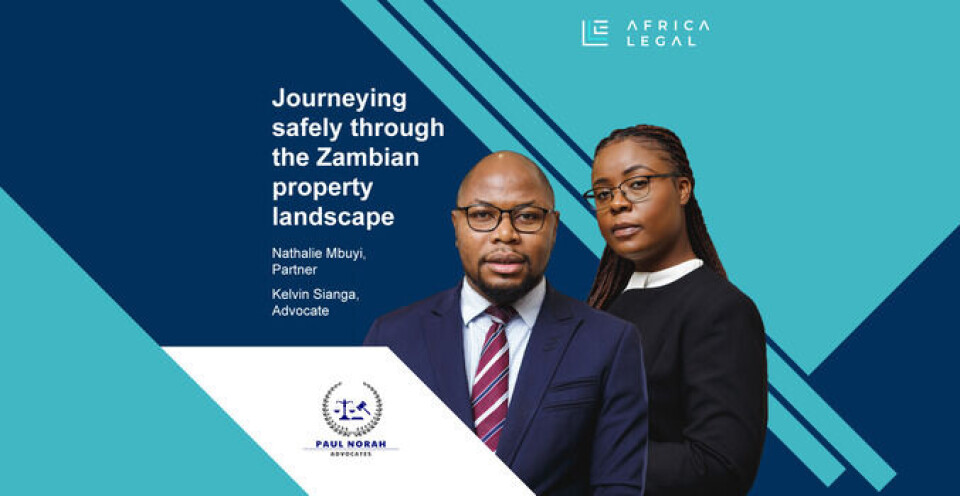Copyright : Re-publication of this article is authorised only in the following circumstances; the writer and Africa Legal are both recognised as the author and the website address www.africa-legal.com and original article link are back linked. Re-publication without both must be preauthorised by contacting editor@africa-legal.com
Journeying safely through the Zambian property landscape

Zambia is experiencing vibrant growth and development in its residential and commercial property markets, but this comes with some challenges. Nathalie Mbuyi and Kelvin Sianga spoke with Craig Sisterson about helping clients navigate a changing landscape.
Whether homeowners or developers, when clients are excited about their property transactions, a key challenge for lawyers is to deliver clear guidance on any issues or processes that may not be as straightforward or fast as clients expect, say Nathalie Mbuyi and Kelvin Sianga.
“When I’m dealing with complex matters regarding their land, I give clients frequent updates and a clear understanding of what’s going on, because in most cases it doesn’t happen as quickly as they want and they get nervous for any delays,” explained Mbuyi, a partner at Zambian law firm Paul Norah Advocates. “So we take our clients step-by-step through matters so they will not be left in the dark.”
Zambia’s commercial and residential property markets are both expected to grow strongly over the next five years. Urbanisation, political stability, infrastructure development, government policies promoting affordable housing and foreign investment, and a young population are all increasing the demand for housing.
One recent change that must be clearly explained to clients, say Mbuyi and Sianga, is that Zambia’s Lands and Deeds Registry has implemented a new system where the physical handling of documents for land ownership changes is being phased out; they’re going digital.
“Our clients were mostly used to having physical titles when they purchased property,” clarified Mbuyi, “but now it’s electronic and digital, so we’ve had to accustom ourselves to the new system as lawyers and explain it to our clients who can feel quite lost and have questions about property being safe, the system getting hacked, and the title no longer being unique.”
In addition to dealing with conveyancing reforms, the expert team at Paul Norah Advocates has also advised on a range of property matters including the growth of large-scale residential property developments in Zambia. Their roles change too – sometimes acting for developers, other times for buyers, and sometimes helping clients bid on commercial and residential properties being offloaded to the private sector by the National Pension Scheme Authority, which requires a different procedure to standard conveyancing.
“We are also actively involved in litigation on land matters and being part of these reforms, where decisions are made and new principles set, now and then, by the courts,” explained Sianga.
Sianga pointed to court pronouncements that have changed land processes and procedures, such as personal representatives now requiring a court order to sell a piece of land, or title cancellation disputes now going before the special Lands Court – the Lands Tribunal - rather than the High Court.
Whether it’s a local family looking to buy a new home, a property developer wanting to sell affordable houses, or a foreign investor needing to navigate various criteria for property ownership in Zambia, good advice is vital, and communication is key. For example, foreign clients need to know details about the residency or investment permits required for individuals, 75% local shareholding, or Zambia Development Agency permits for companies.
“It’s all about having a client who understands what’s going on, and me as a lawyer having a clear mind for any challenges that may arise,” noted Mbuyi.
To join Africa Legal's mailing list please click here
